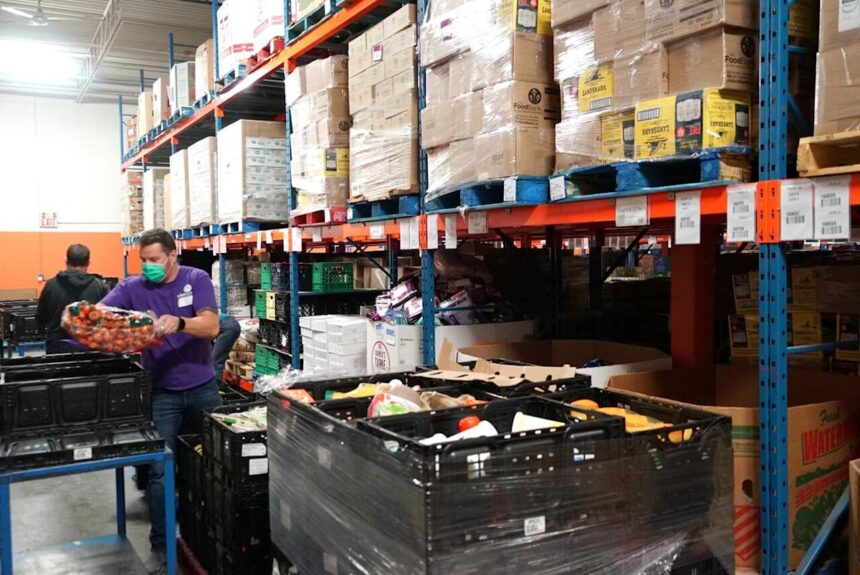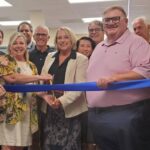In the fluorescent-lit basement of Waterloo’s Community Food Bank, Salma Zahid carefully measures flour into a stainless steel bowl. The 43-year-old Syrian refugee arrived in Canada just 14 months ago with minimal English and a dream to rebuild her life. Today, she’s among twelve participants in an innovative culinary skills program helping newcomers transition into the Canadian workforce.
“Before this program, I felt invisible,” Zahid tells me during a break in her food handling certification class. “Now I have hope to work again, like in Damascus where I managed a small bakery.”
The Newcomer Employment Training Initiative, launched this January through a partnership between the Region of Waterloo, local businesses, and settlement agencies, represents a practical solution to twin challenges facing the community: integrating newcomers while addressing labor shortages in the food service industry.
Statistics Canada reports that immigrants arriving between 2016-2021 face unemployment rates nearly double those of Canadian-born workers, despite often bringing significant professional experience. In Waterloo Region specifically, where tech sector growth has transformed the economy, many newcomers find themselves caught in an experience gap that’s difficult to bridge.
Program coordinator Lena Abadi explains the initiative’s practical approach. “We’re not just teaching kitchen skills. Participants learn workplace communication, cultural expectations in Canadian workplaces, and build their professional networks. These are the invisible barriers many newcomers face.”
The twelve-week program combines hands-on culinary training with language support and job readiness skills. Participants spend mornings in the teaching kitchen and afternoons in classroom sessions covering everything from resume writing to understanding Canadian workplace norms.
Local restaurant owner Michael Keeling, who sits on the program’s advisory board and has hired two graduates, points to the mutual benefit. “We’ve been short-staffed since the pandemic. These newcomers bring incredible work ethic and often culinary traditions that enrich our menus. What they need is that first Canadian experience and someone willing to mentor them.”
The program costs approximately $240,000 annually, funded through a combination of provincial workforce development grants and contributions from local businesses. Early results suggest it’s money well spent – of the first cohort of 15 participants who completed the program in March, eleven are now employed, three are pursuing further education, and one has started a small catering business.
For Waterloo Mayor Dorothy McCabe, the program represents smart community investment. “When newcomers succeed economically, the whole region benefits. They pay taxes, rent apartments, shop in our stores, and contribute their talents. This program turns potential dependency into productivity.”
The Region of Waterloo welcomed nearly 4,300 newcomers in 2022 according to Immigration, Refugees and Citizenship Canada data, representing a 32% increase over pre-pandemic levels. With housing costs rising and social services stretched, programs that accelerate economic integration have taken on new urgency.
Yet challenges remain. Ahmad Hassan, who completed the program in March and now works as a line cook at a downtown bistro, describes ongoing struggles despite his employment success. “I work hard, but my salary barely covers our apartment. My wife cannot find childcare to look for work, and my engineering degree from Iraq means nothing here.”
Hassan’s experience highlights that employment training alone can’t address all integration barriers. Affordable housing, childcare, and credential recognition remain significant hurdles for many newcomers.
The program doesn’t shy away from addressing these realities. Weekly workshops include sessions on tenant rights, childcare options, and pathways to credential recognition. Community partners including the YMCA and Conestoga College provide wraparound supports.
Inside the teaching kitchen, I observe as chef-instructor Marco Piva demonstrates knife skills to participants from Syria, Colombia, Ukraine, and Nigeria. The atmosphere is focused but lighthearted, with occasional laughter breaking through the serious work.
“Food brings people together across cultures,” Piva tells me later. “In this kitchen, we’re not just teaching cooking – we’re building confidence. Many participants come from countries where they were professionals, and suddenly they’re starting over. Mastering a new skill reminds them of their capabilities.”
The program’s comprehensive approach reflects growing recognition that newcomer integration requires both practical skills and community connection. Each Friday, participants prepare lunch for staff and volunteers at the food bank – creating natural opportunities for networking and relationship building.
Volunteers from local businesses also mentor participants, offering industry insights and sometimes serving as references. “That first Canadian reference can make all the difference in a job search,” explains career counselor Diana Wright, who leads the program’s employment readiness component.
As the region prepares to welcome more newcomers, program organizers are already planning expansion. A second teaching location will open in Cambridge this fall, and discussions are underway to develop similar models for other sectors including childcare and construction.
For Salma Zahid, the program has already succeeded in its most important goal – restoring dignity and purpose. “In Syria, I was someone who helped others. Here I started as someone who needed help. Now I’m becoming helpful again,” she says, showing me the perfectly shaped dinner rolls she’s prepared for today’s community lunch.
Sometimes the most effective solutions to complex problems begin with flour, water, and the universal human desire to contribute.






